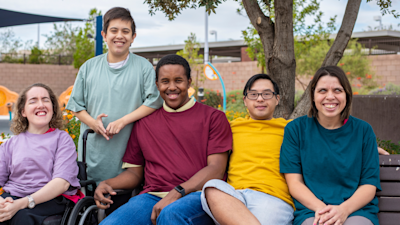Telling stories creates connections between people and ideas. Stories teach us, inspire us, and connect us to one another.

Image: Close-up of three people standing close together in front of the LGBTQIA+ flag.
We asked bi+ members of our LGBTQIA+ employee network, Pride Without Barriers, to share their stories, and reflect on why bi+ visibility is important and what makes a good bi+ ally.
Stacey-Lee
As a bisexual person, I feel like many people know the literal definition of the term, but may struggle to understand what this means in everyday life. Most people I’ve discussed my sexuality with mean well, but have had limited exposure and, inadvertently, make comments that contribute to bi-erasure.
Statements like “Oh, they must be gay now” or “So you decided on men” implies that my bisexuality stops existing if I’m in a relationship.
That’s why we need to have these discussions.
An attitude I find particularly frustrating is the idea that men and women can’t be friends without developing feelings (I��’m looking at you, ‘When Harry Met Sally’). What you’re saying is you can’t be friends with somebody who is of a gender you are attracted to. If that were the case, since I am attracted to multiple genders, you’re effectively saying I shouldn’t have friends, or else I may become attracted to them.
I appreciate that this is a weirdly specific thing to have a conniption about. Still, it’s a discussion I seem to be having a lot recently and only ever seem to have these conversations with my male friend’s partners, girlfriends, wives, or dates. I’ve never once had this discussion with a female friend’s partner, even when they’ve been aware of my sexuality.
More than anything else, it makes me feel like I need to explain to people that bisexual and multi-gender attracted people do, in fact, exist, and when our existence is accounted for, these old-school ideas really don’t make any sense.
What’s most important for me is that people are trying. Many people are learning and challenging the values that they grew up with, and nobody expects it to happen overnight. When a person makes an effort to say that friend of yours who started dating women isn’t necessarily a lesbian and might still like men, or challenge someone who says that a bisexual person has “picked a side”, I see you, and I appreciate you.
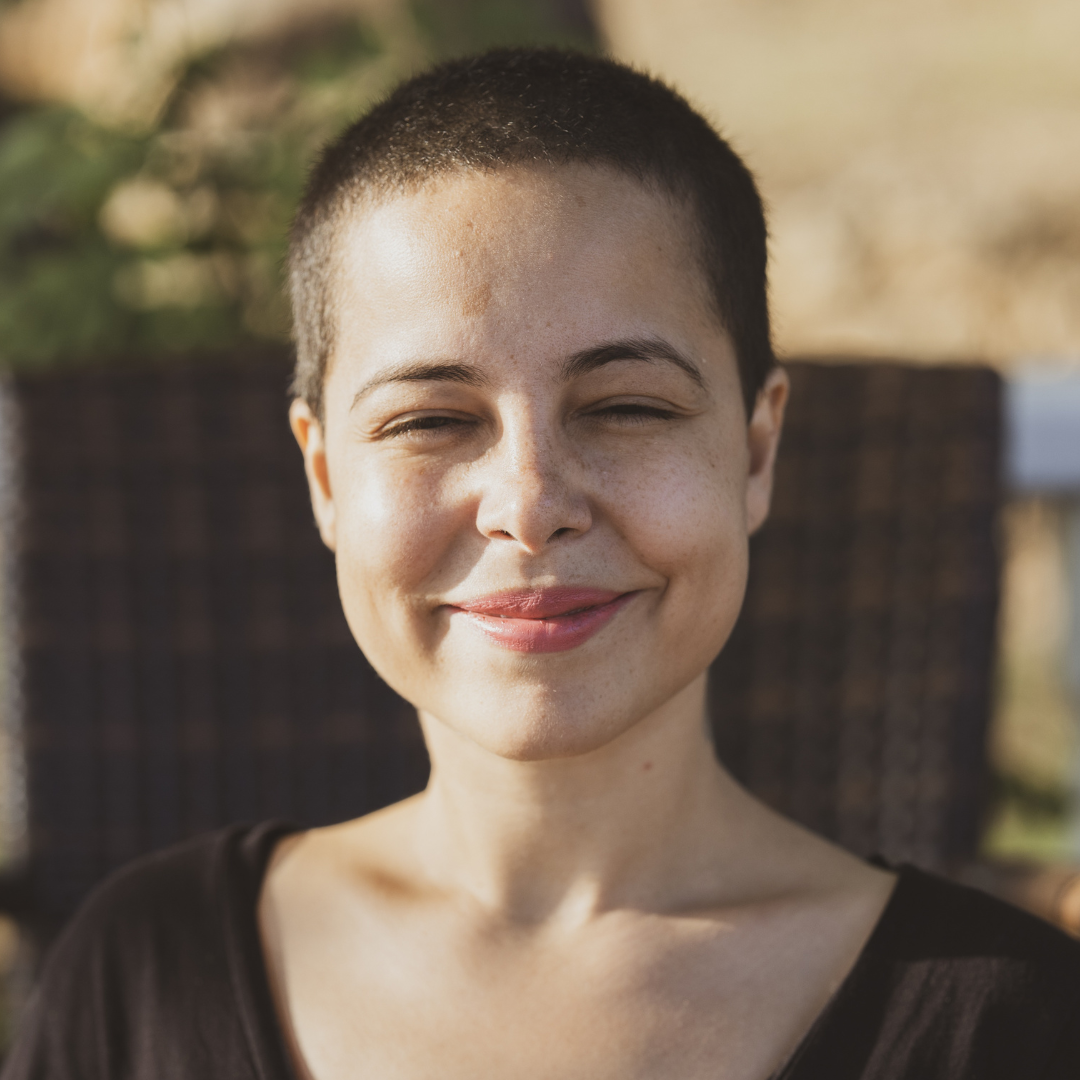
Ash
The first time I tried to come out at work was to my previous manager, a gay man. As part of the LGBTQIA+ community, I thought he would be a safe space. I tested the waters on what he thought of bisexuality, and he said, “That doesn’t exist. Bisexual people just haven’t picked yet”.
Twenty-year-old Ashleigh went right back into the closet.
Experiences like this, where my sexuality was questioned or denied outright, were common, both within and outside the LGBTQIA+ community.
A few years later, on my first day of induction at my next employer, I saw a poster advertising their LGBTQIA+ employee network. I joined that day. Over the next four years, I went from hiding my sexuality to being open about who I was. I built relationships with like-minded people and found a community.
Positive visual cues like that poster act as safety signals for people in the LGBTQIA+ community. They tell me I am safe here, that you are an ally. Wearing a rainbow badge or lanyard, using a virtual background supporting the LGBTQIA+ community, or including your pronouns in your email signature are all ways you can signal your support.
At 32, I am completely out and proud as a bi+ woman in my personal and professional life.
I don’t check part of myself at the office door.
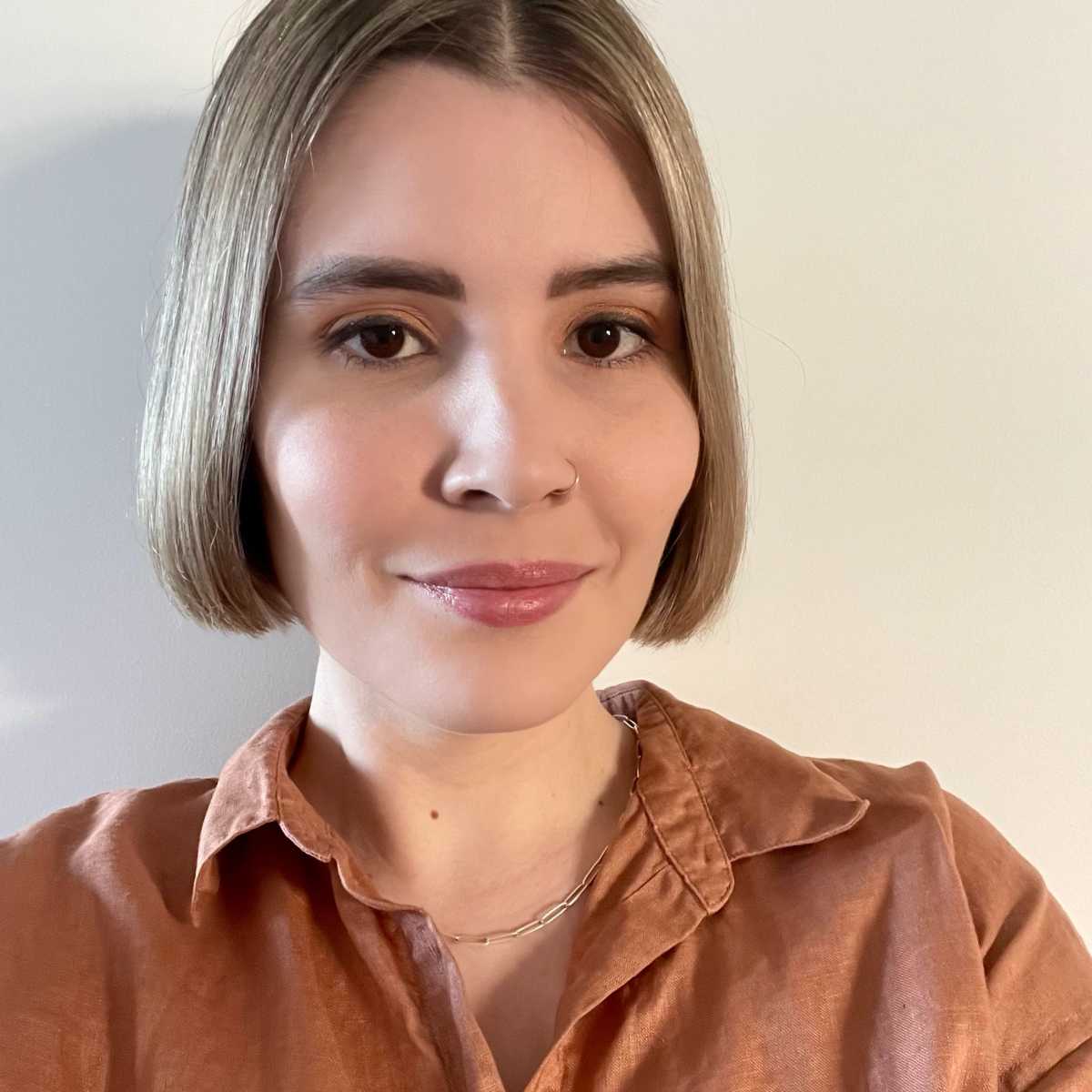
Anon.
I’ve noticed when someone states their sexual orientation as bisexual or pansexual; it is usually followed by “we do exist”. I feel that we are still presumed to be not queer enough for the queer community, which is sad, given how far our society has come in embracing diversity.
This is a sign that there is still a way to go in genuinely accepting all parts of the LGBTQIA+ community.
For me, I am attracted to personality and connection first and foremost. When I came out as bisexual/pansexual, I had received support from straight friends and family; however, I did not receive this same support from those close to me already in the LGBTQIA+ community. I wonder if I had come out as lesbian if this would have made a difference; if I would have been more likely to be accepted and acknowledged as part of the LGBTQIA+ community.
I had also received advice from a gay friend not to disclose my sexual orientation when talking to women; it would be a deterrent. Hearing such advice, I wonder how many of the LGBTQIA+ community fall into the ‘B’ category but are too afraid to be open about it.
We do exist; we breathe the same air as everyone else and are just as much on our rainbow journey as others.
To me, a bi+ ally is someone who acknowledges our part in the community, allows us to be who we are without judgement or expectations, and doesn’t get caught in the assumptions of what bisexuality is.
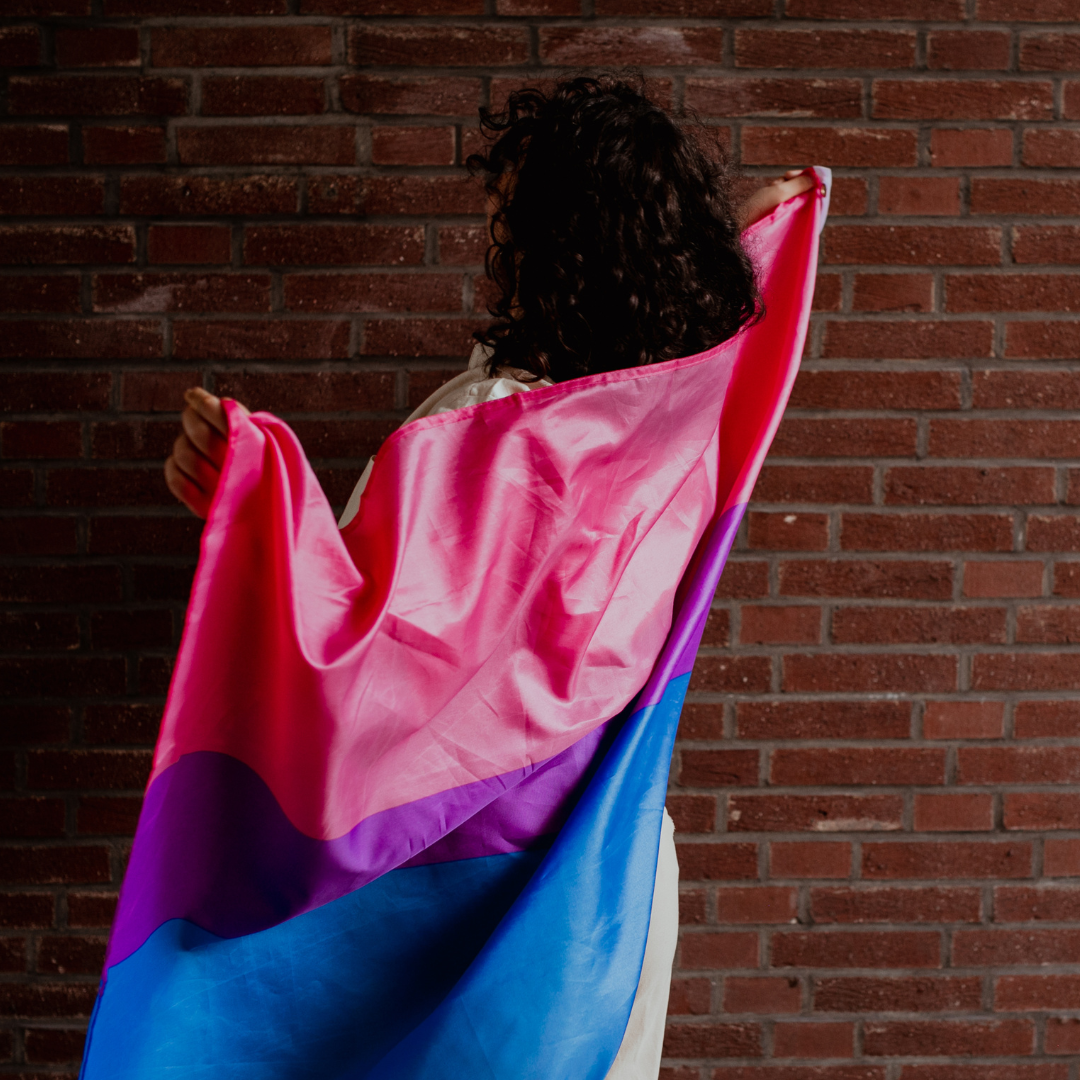
Claire
“She wants the best of both worlds.”
“He doesn’t know which way he goes.”
“She’s a fence-sitter.”
All overheard in smug, aggressive tones as if someone’s bisexuality is a personal vendetta against her. All overheard in her home, a home I should feel safe in. Later, after she’s recruited allies and others in the house who have laughed or responded with something equally ignorant and dismissive, she smirks as though she’s won an argument. As if she’s somehow one-upped the source of her irritation.
She doesn’t yet know I’m an irritation, doesn’t know I’m one of “those people”. We all choose our battles, and I choose mine carefully.
Early on, I wasn’t asked, and it didn’t occur to me to mention it. It’s a part of what makes me, me, not something I feel the need to declare as an introduction. I’m so many things – being bisexual just happens to be one of them.
These days, now that I’ve witnessed the self-righteousness, the absence of understanding and the much larger absence of a desire to understand, I wait for the comments, and I assume the brace position. I’m equanimous when I respond. I suggest viewpoints other than the one she’s comfortable with, ask provocative questions and point in the direction of a more open mind.
But I still haven’t told her about me.
And she still hasn’t asked.
Thankfully, I don’t rely on her for measures of self-worth or validation. I pour all my energy into the places where it’s expected I’ll be myself. All of myself. These are the places we belong, the places deserving of us. Sometimes water, not always blood. Places worth fighting for.
This is the battle I choose.
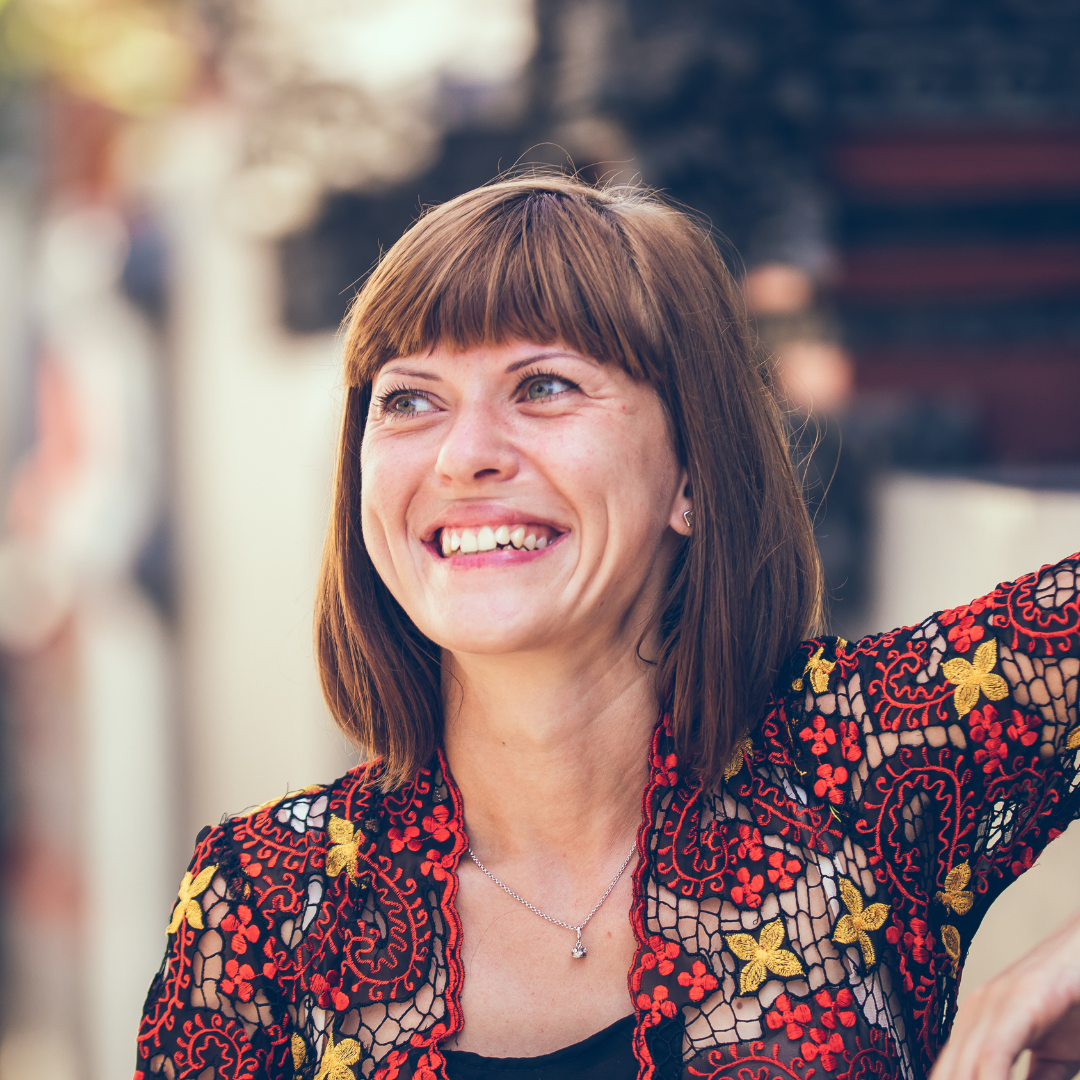
Anon.
Marrying a man made my sexuality invisible, but the power of labels and stereotypes reared its ugly head when a family member learned of my bisexuality. She suddenly refused to acknowledge my presence. She threw a tantrum and told my husband, “She’s bi! She will leave you one day and run off with a woman!”
At that moment, I stopped existing as an individual and was replaced by a hurtful stereotype. Before this, she had referred to me as an “angel” and had been nothing but nice. The many ways I’d shown up for my family, my values, character, and actions were suddenly worth nothing.
My commitment to my husband was questioned and dismissed based solely on the word I use to describe my sexuality.
Bi+ visibility matters because we’re a misunderstood bunch.
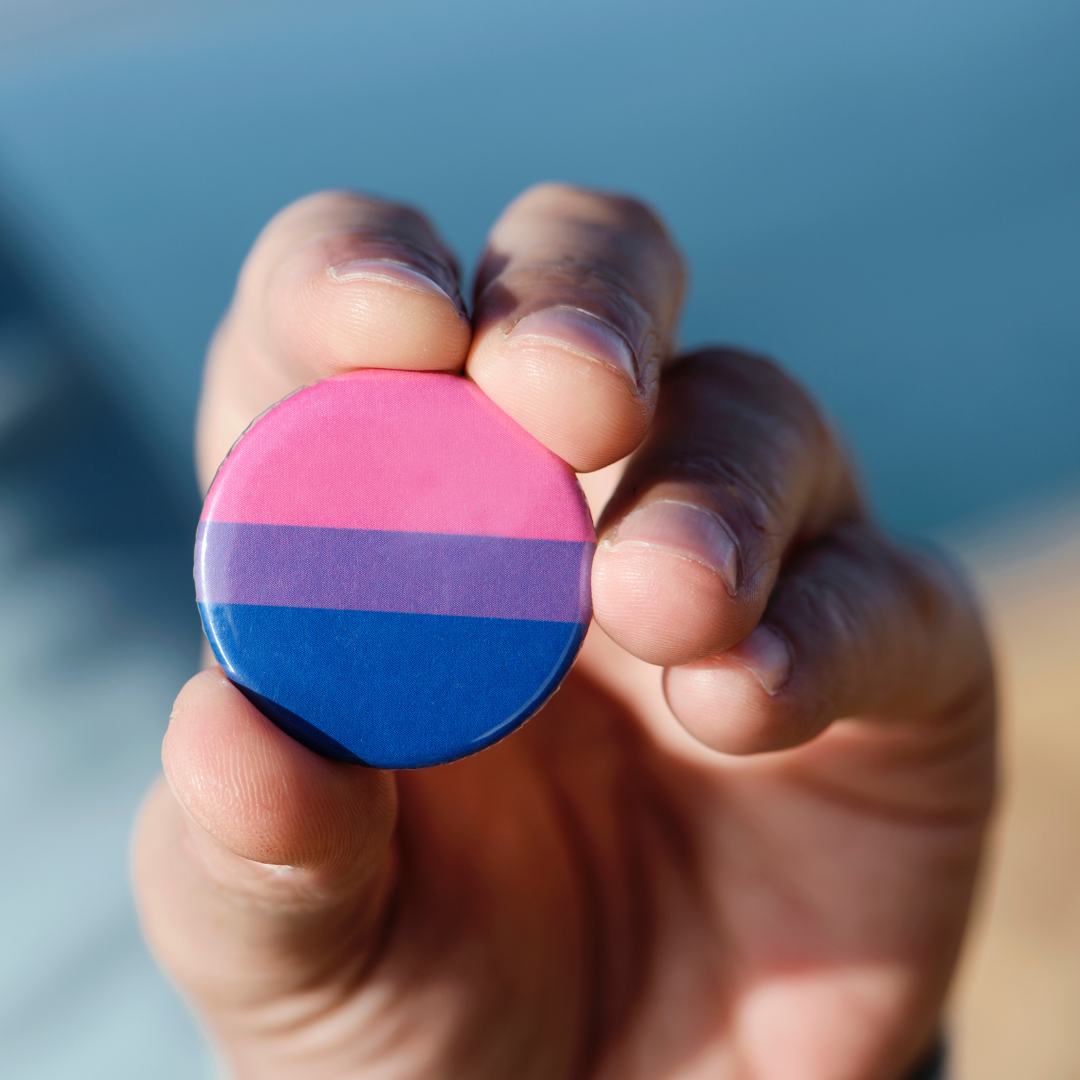
What can I do to support the bi+ community?
We all have a responsibility to contribute to an inclusive culture. Reflect on your privileges, prejudices, and stereotypes and make an intentional effort to change your behaviour.
Check out the 10 Ways You Can Step Up as An Ally to Bi People article for tips on being a better bi+ ally and to learn more about the bi+ community.
